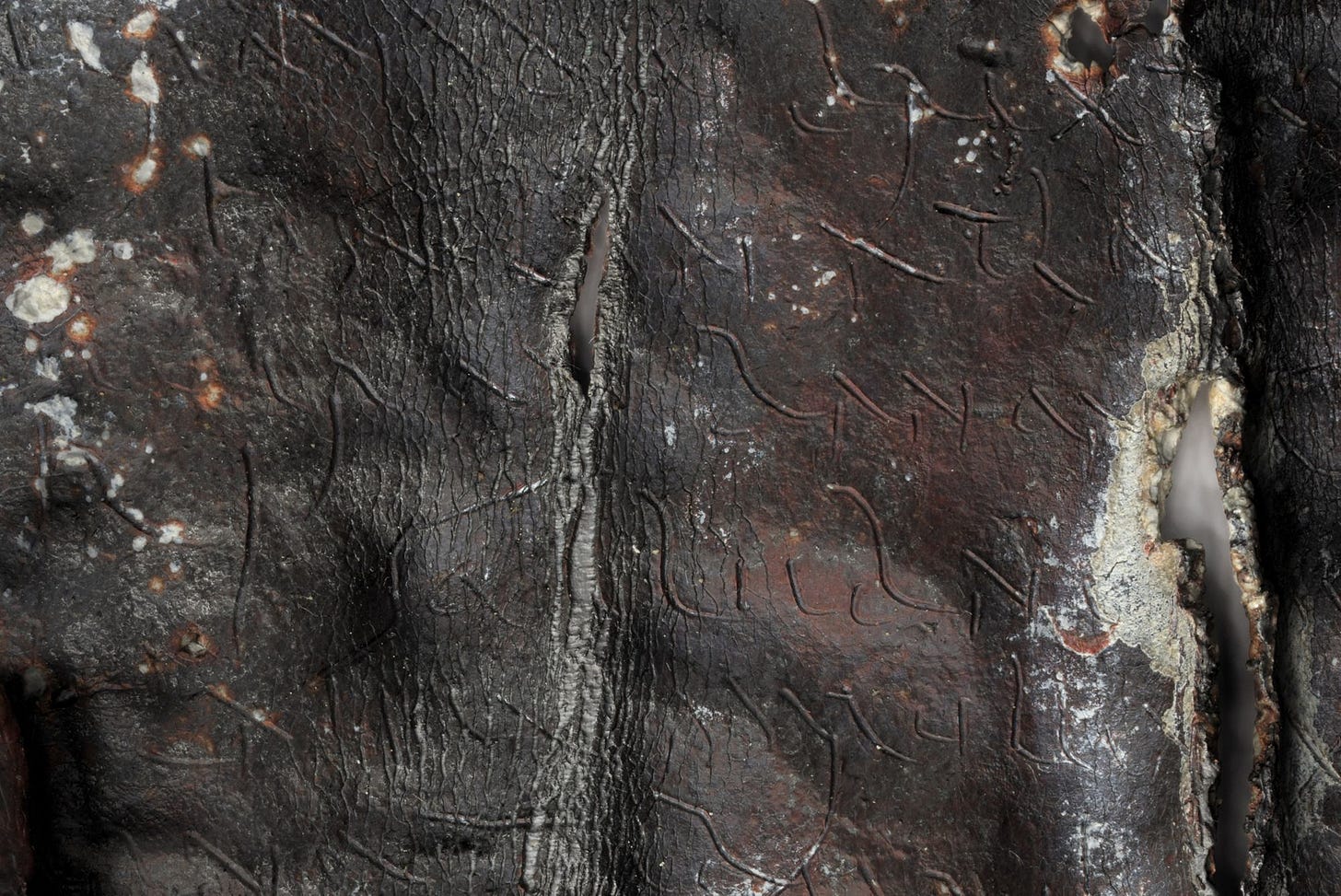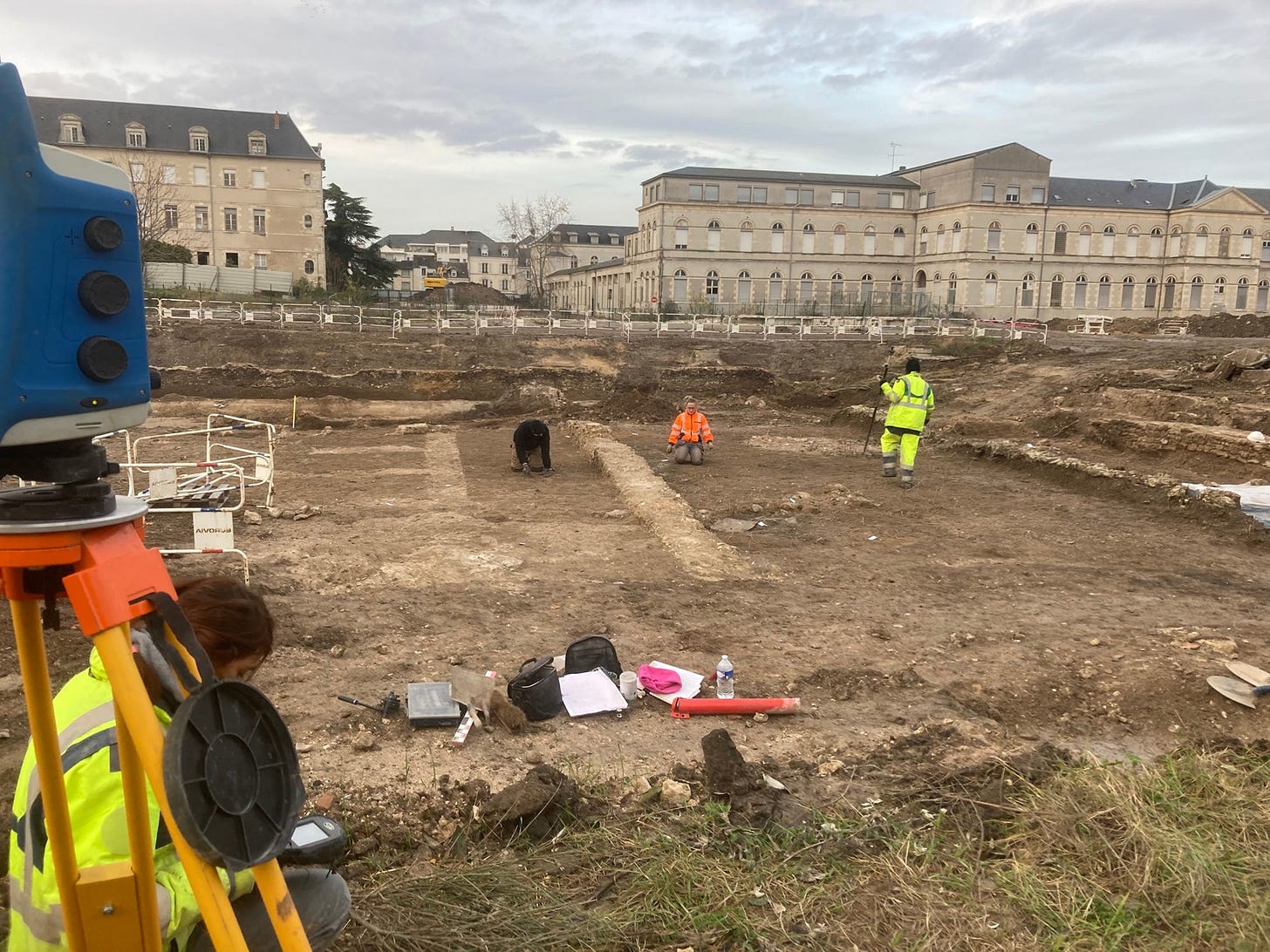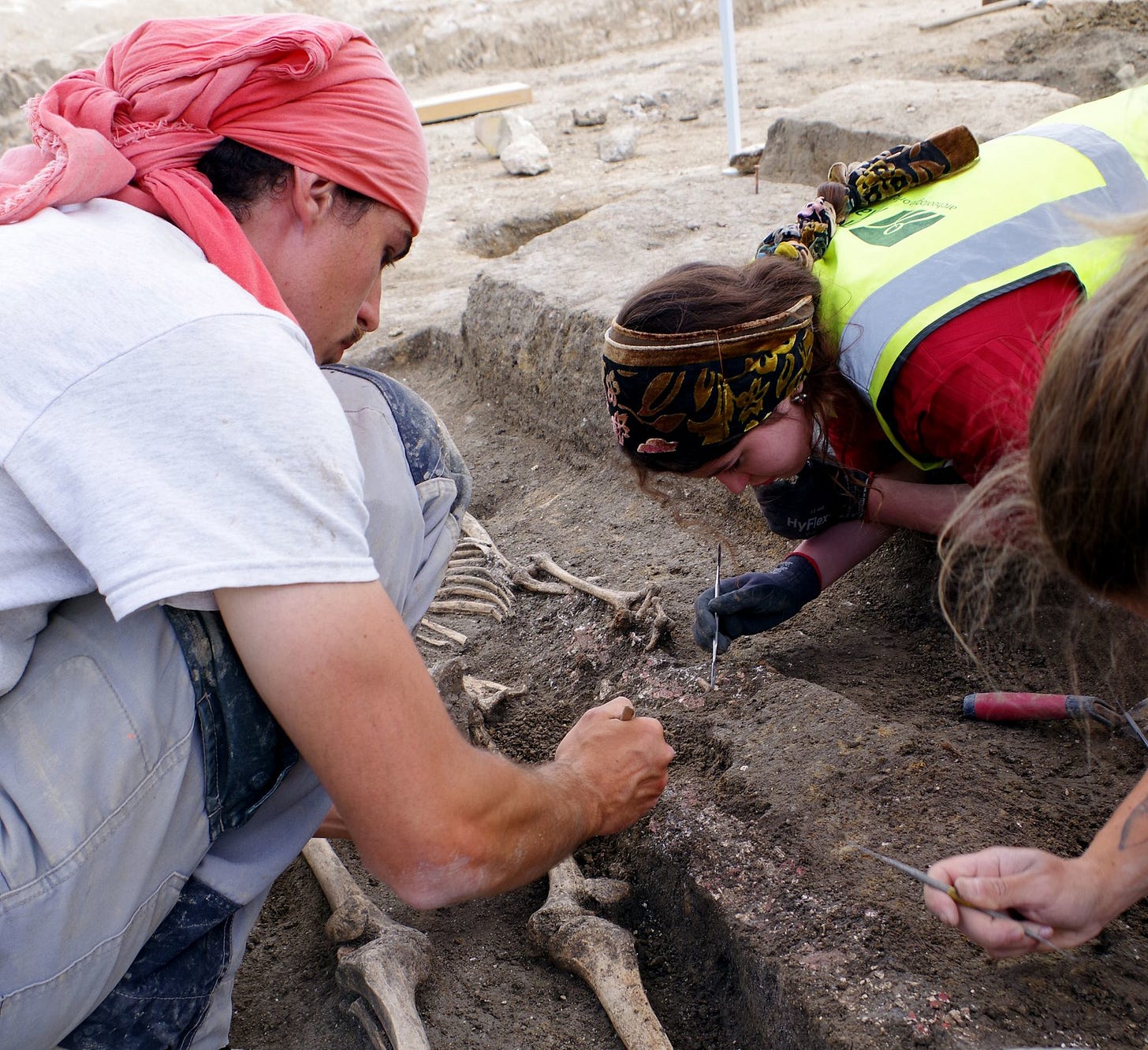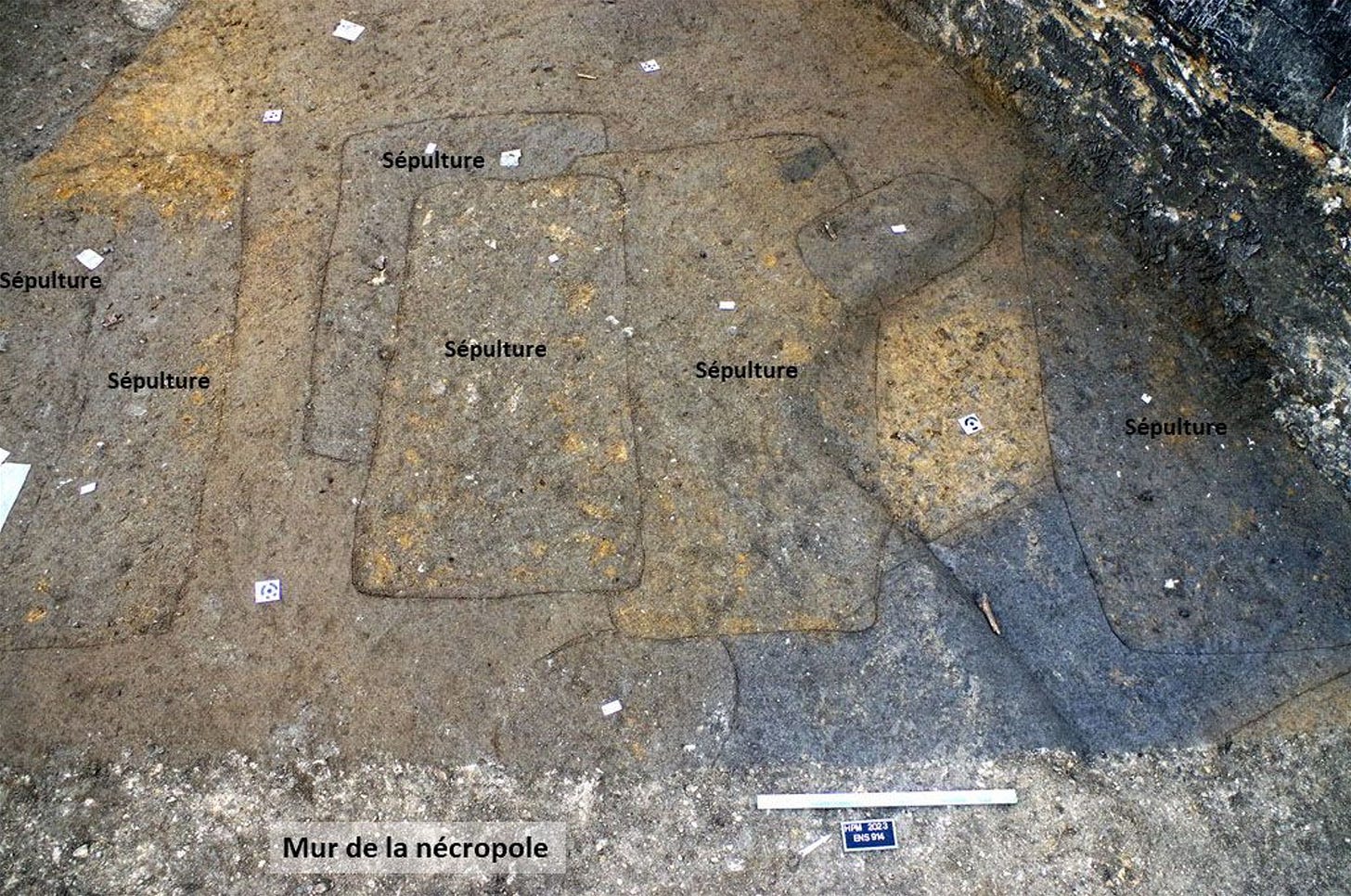Curse graves unearthed as DOZENS of ancient burials discovered under closed historic hospital
Porte Madeleine hospital in Orléans, France, was the site of dozens of Roman graves, with multiple curse tablets – or defixio – inside.

ANCIENT curses invoking the wrath of the gods have been discovered in a series of mysterious graves beneath a historic hospital.
Excavations at the former Porte Madeleine hospital in Orléans, France, have revealed dozens of male burials dating back to the Roman era.
And in several graves, ancient curse tablets known as defixio have been found, calling upon Roman gods to punish various wrongdoers, identified by name.
Project managers Caroline Millereux and Julien Courtois said 22 had been found so far, spread across 11 burials, boosting the number of defixio found in France by 50%.
They said: “They are very thin sheets of lead with an inscription intended to harm one or more people – the ones we found are either rolled or folded.
“The tablets were often written by individuals seeking justice or to exert spells on enemies or rivals, or even to protect personal objects.
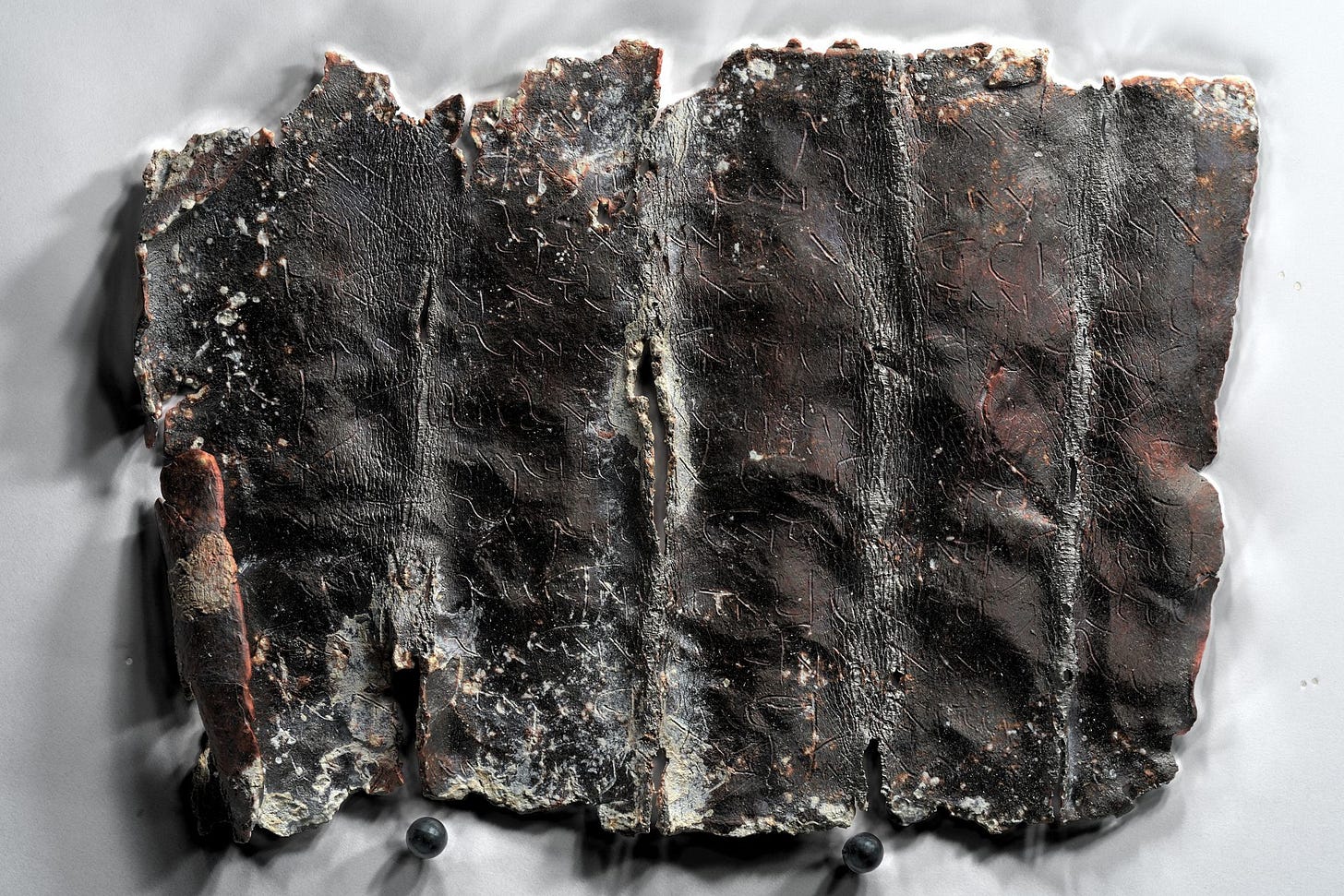
“The objective was to raise supernatural aid in order to bind someone under the control of the person who laid the curse.
“The authors of these tablets were usually anonymous individuals seeking magical or divine help, but in some cases their names are mentioned.
“It is common for the authors to be private individuals – often commoners, sometimes slaves or traders – and for the inscription to be addressed to deities or spirits.”
They added: “Defixio were made for a very long period of time – the first ones are dated to the sixth century BC.
“However, discovering 22 tablets on the same archaeological site, increasing the corpus known in France by 50%, is remarkable!”
So far, only two of the tablets have been deciphered.
One, in the extinct Gallic language, asks Mars – the Roman god of war – for the “bewitchment” of multiple people and their accomplices “who accomplished the unfortunate and unjust feat”.
RELATED ARTICLES
Does this church hide the 'entrance to the underworld' of Zapotec legend?
Meet the architect of HELL: True face of Dante Alighieri revealed
Shrine from Bible sealed up by Jesus’ ancestor 3,000 years ago unearthed in ancient heart of Jerusalem
Another, in Latin, calls upon Mercury – the Roman god of financial gain and commerce – to denounce two thieves, Sgaurillus and Gnossius, and make them return their plunder.
Those laying the curses may have written the tablets themselves, or they might have hired a professional to do it for them, if they could not write.
Despite the tablets being found in graves, it’s thought that the deceased were merely “intercessors”, relaying the curse for somebody else.
The archaeologists said: “The curses were always placed beneath the ground – to reach chthonian gods and goddesses.
“They were buried in graves or tombs, or thrown into wells or pools, or sequestered in underground sanctuaries, or nailed to the walls of temples.”
The former hospital at the site was built in 1675, closing only in 2015.
But the burials themselves date from the end of the first century AD, up to the middle of the third century AD.
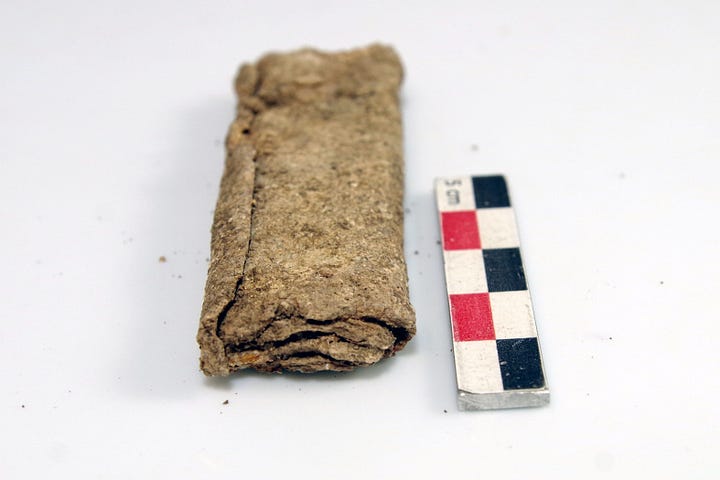
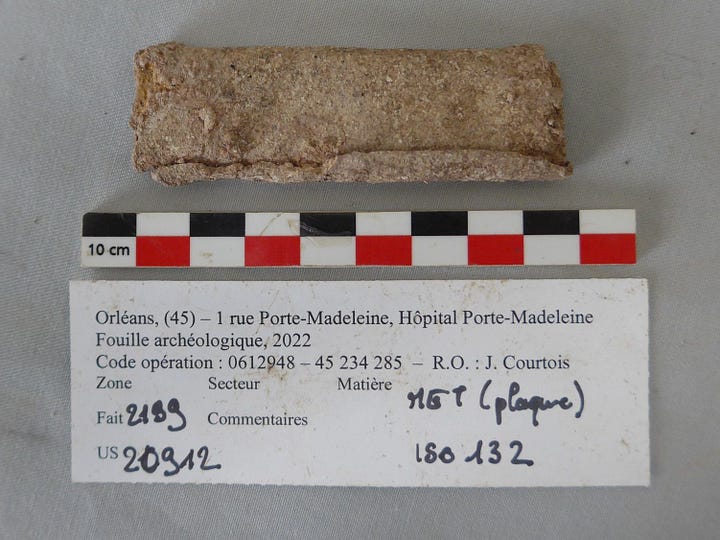
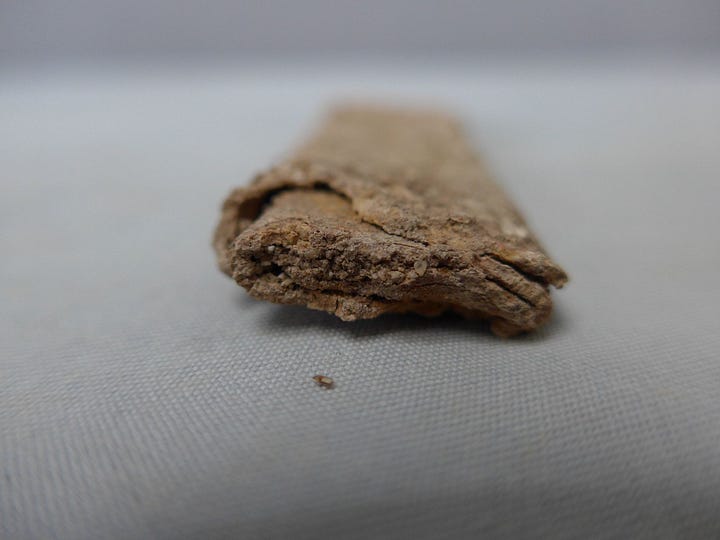
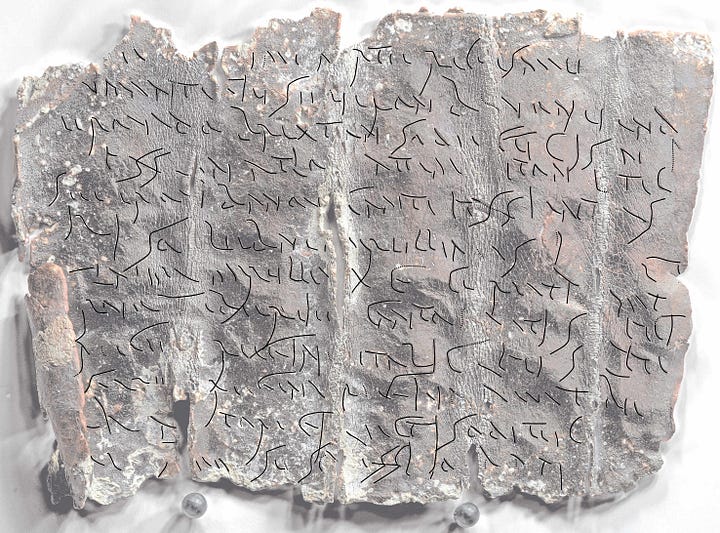
At the time, France was the Roman province of Gaul, and Orléans was called Cenabum.
So far, 76 ancient graves have been excavated, all belonging to men, and all lined up in a row with no cremations.
The deceased were between the ages of 20 and 50.
It suggests this was no ordinary burial ground.
Reached via email, the archaeologists wrote: “We really do have a lot of tablets, and in an atypical funerary space, with only active men.
“There is undoubtedly a reason for this, and we hope to be able to answer this question.
“To this purpose, we will try to decipher the other tablets, which also appear to be inscribed.
“And we're going to continue to study the human bones that have been found – perhaps we'll discover the reason for their deaths, or their jobs or status.”
They continued: “We imagine today that their tomb was chosen for symbolic reasons, due to their profession or status in Roman society in Orléans.
“But it could be just a story of opportunity.
“We also imagine that the reason for the presence of tablets, and in such large numbers, is not just because the site is well-preserved.
“It's a reflection of the mentality of the people of Orléans – that they believed in this magic, that of the defixio.”





